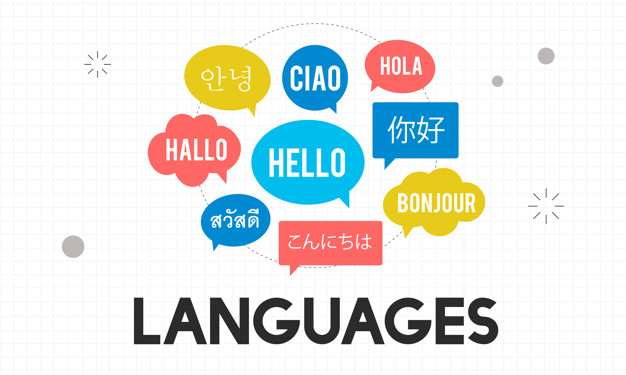News Blast
Your daily source for breaking news and insightful articles.
Faking Fluency: Hilarious Mishaps on the Road to Language Proficiency
Discover the funny blunders of faking fluency! Join us for laugh-out-loud language mishaps on the road to mastering a new tongue!
Lost in Translation: Funny Tales from Language Learners
Lost in Translation can lead to some hilarious moments for language learners. Many of us have experienced that awkward moment when a phrase we thought we understood leads to an unintended and comical outcome. For instance, a student learning Spanish might confidently tell a local, 'Estoy embarazada,' only to discover that they just announced they are 'pregnant' instead of feeling 'embarrassed.' These funny tales remind us that language is not just about vocabulary; it's also about cultural nuances and context, which can sometimes spiral into amusing misunderstandings.
Another frequent source of laughter comes from the literal translations of idioms. A Chinese student might attempt to translate 'It's raining cats and dogs' into Mandarin. The result? A blank stare from the listener, who is now picturing an odd menagerie tumbling from the sky! These amusing lost in translation moments aren't just a source of laughter; they create bonding experiences among language learners, as we share our blunders and learn to laugh at ourselves along the way. Embracing these funny tales enriches the journey of mastering a new language.

The Art of Faking Fluency: Comical Mistakes We All Make
We’ve all been there, trying to impress our friends with our linguistic prowess, only to slip up in the most comical ways. These comical mistakes often highlight the absurdity of language learning. For instance, imagine confidently ordering a 'large beer' in Spanish only to accidentally ask for a 'large bug' instead! Such blunders not only elicit laughter but also serve as reminders that fluency is more about communication than perfection. Embracing these moments can foster a more relaxed approach to learning and enhance our ability to connect through shared laughter.
In this unpredictable journey, it’s the funny errors that keep language learning alive. Take the infamous 'false friends'—words that look similar in two languages but have hilariously different meanings. For example, the French word 'librairie' translates to 'bookstore,' not 'library' as one might assume. Mistakes like these can turn a simple conversation into a laugh riot. So, the next time you stumble over words or unleash an unexpected translation, remember: the art of faking fluency is not about being flawless, but about enjoying the journey and learning from every hilarious misstep along the way.
What Happens When You Pretend to Speak a Language? Hilarious Storytime
Have you ever found yourself in a situation where you pretended to speak a foreign language, and things didn't go quite as planned? One time, while traveling in Spain, I confidently walked into a local café and attempted to order in *Spanish*. I was feeling brave, so I decided to throw in some fancy phrases I had picked up from a travel guide. Instead of ordering a simple coffee, I exaggeratedly declared, "Una taza de café con la crema y el azúcar, por favor!" To my horror, the barista looked utterly baffled, and I ended up with a plate of fried calamari instead of my much-needed caffeine fix. The hilarious part? I didn’t even realize I had mistakenly ordered from the seafood section until it was too late!
The situation escalated when I tried to salvage my mistake by gesturing wildly, hoping that it would help bridge the linguistic gap. In my earnest attempt to explain my blunder, I ended up mimicking a fish flopping out of water, which only drew more confused stares from the customers around me. What happens when you pretend to speak a language? You find yourself trapped in a comedy of errors! At that moment, I learned that while miming might be entertaining, it certainly doesn’t replace the beauty of authentic communication, even if it sometimes leads to a hilarious storytime to share with friends later.